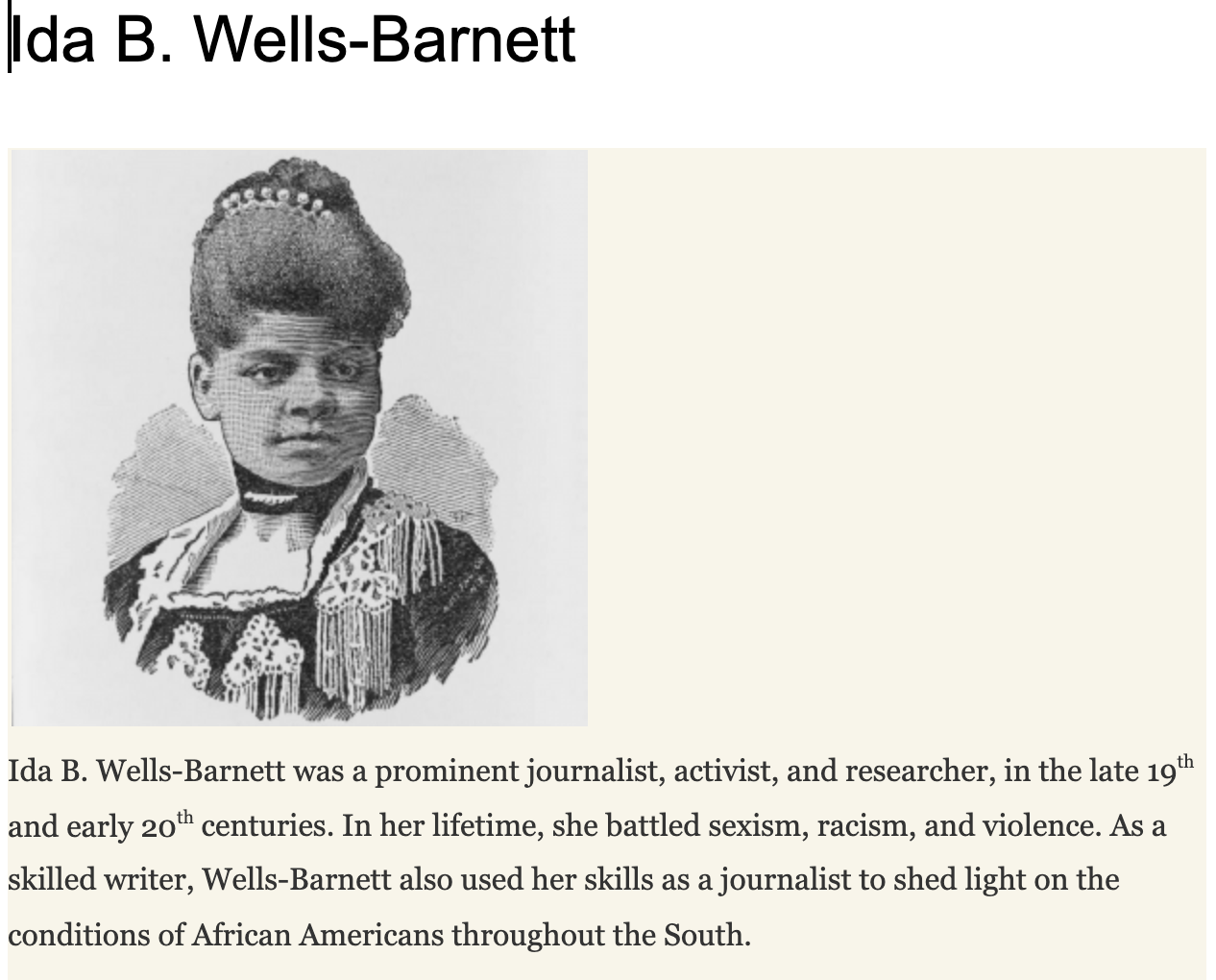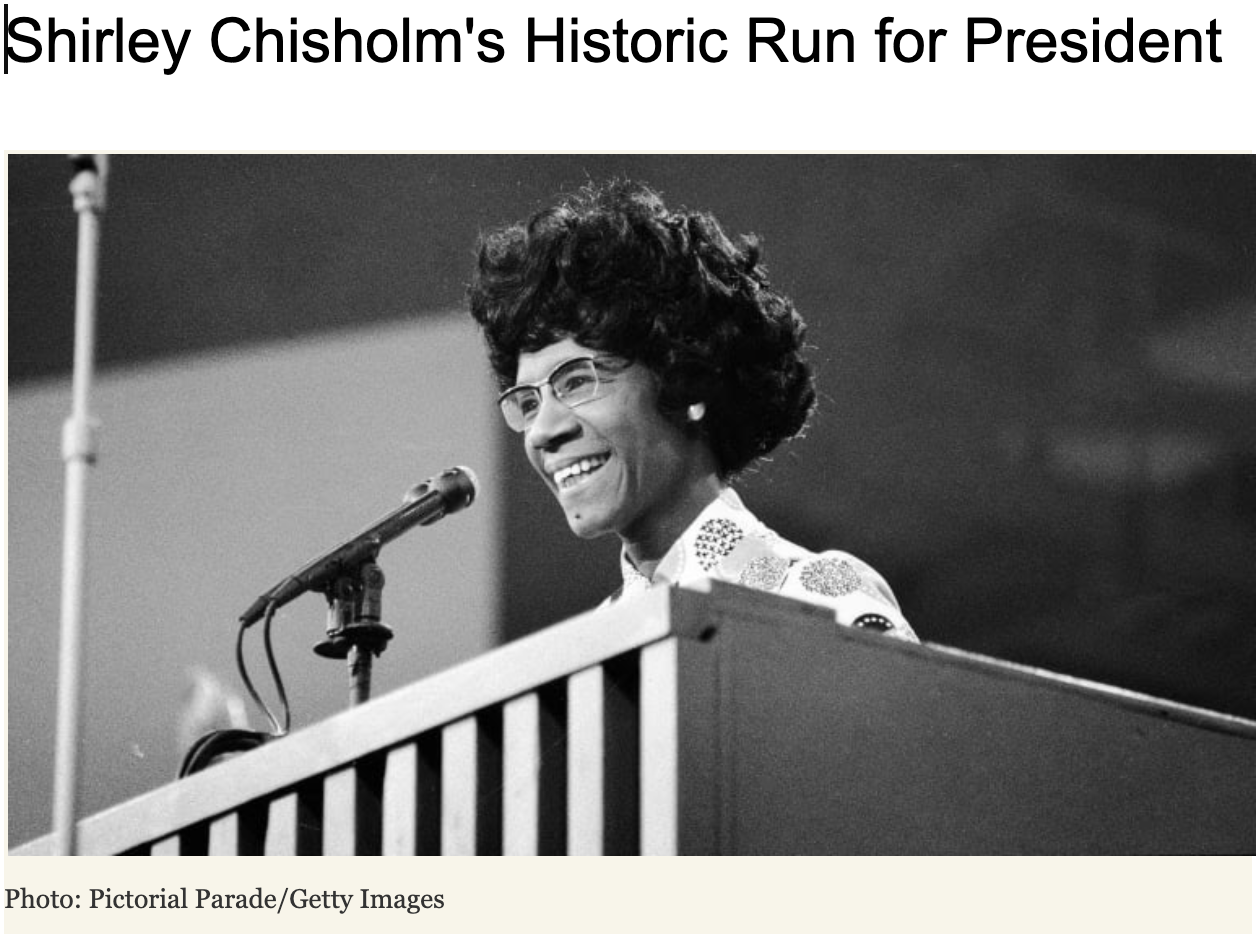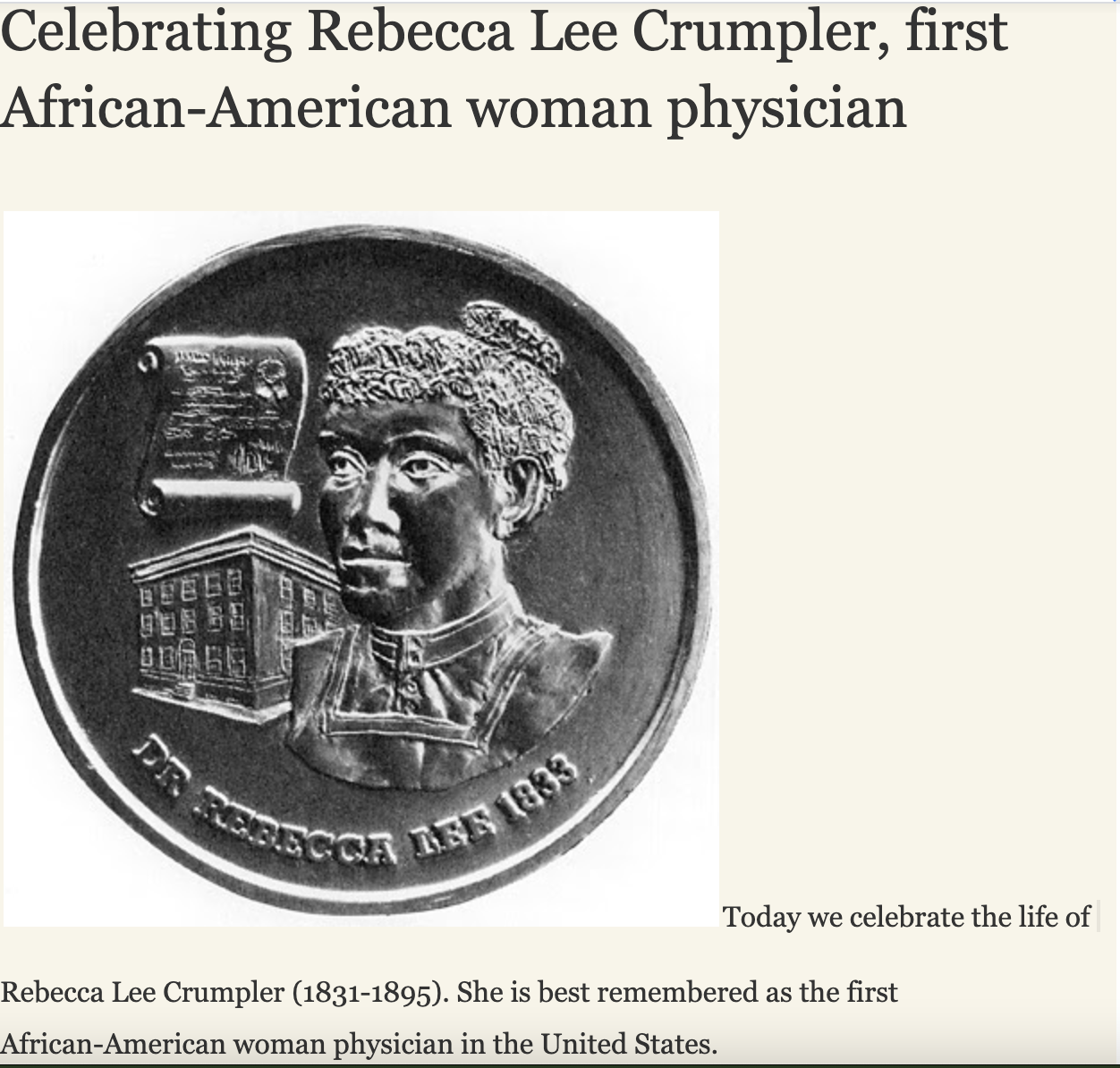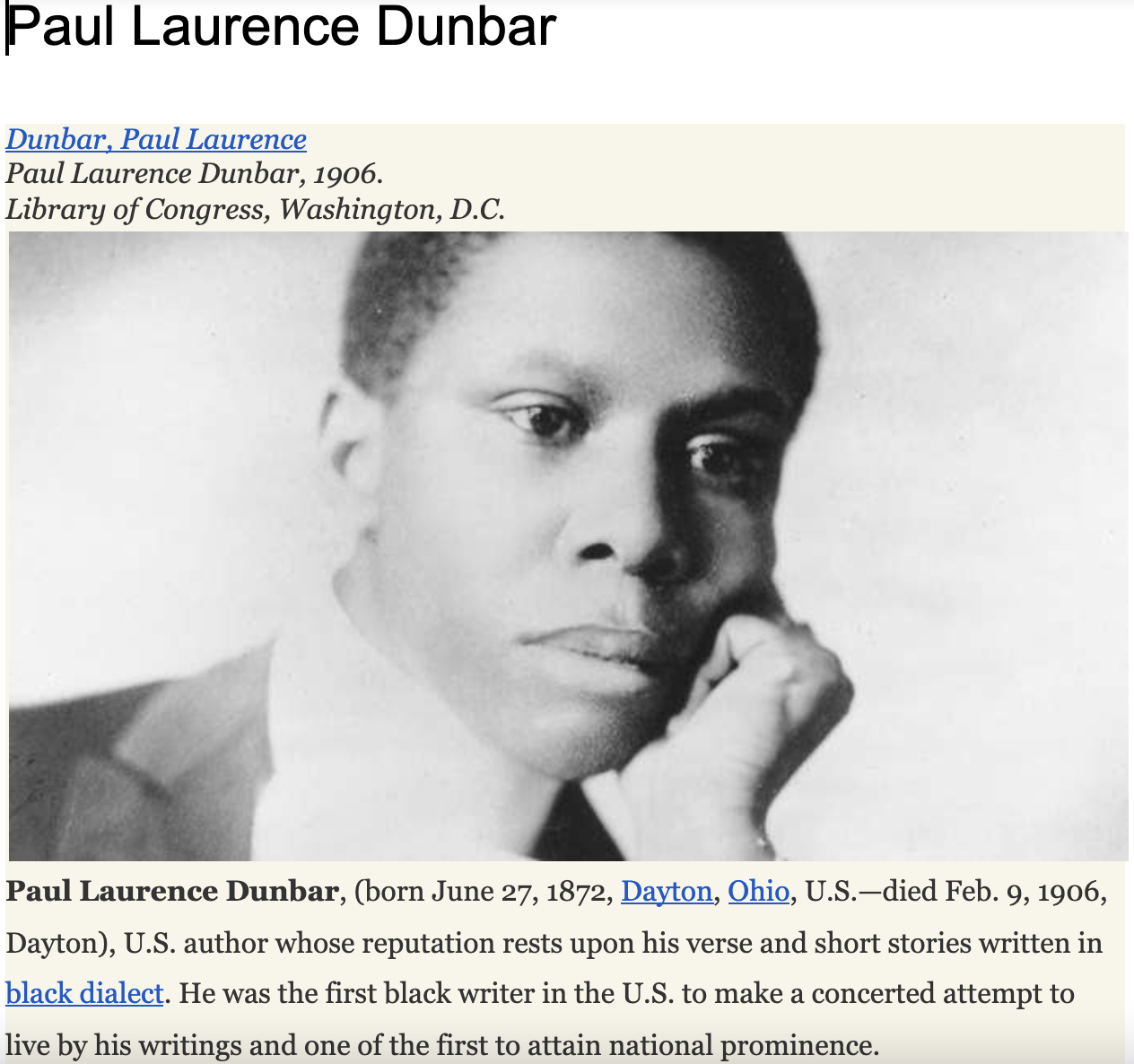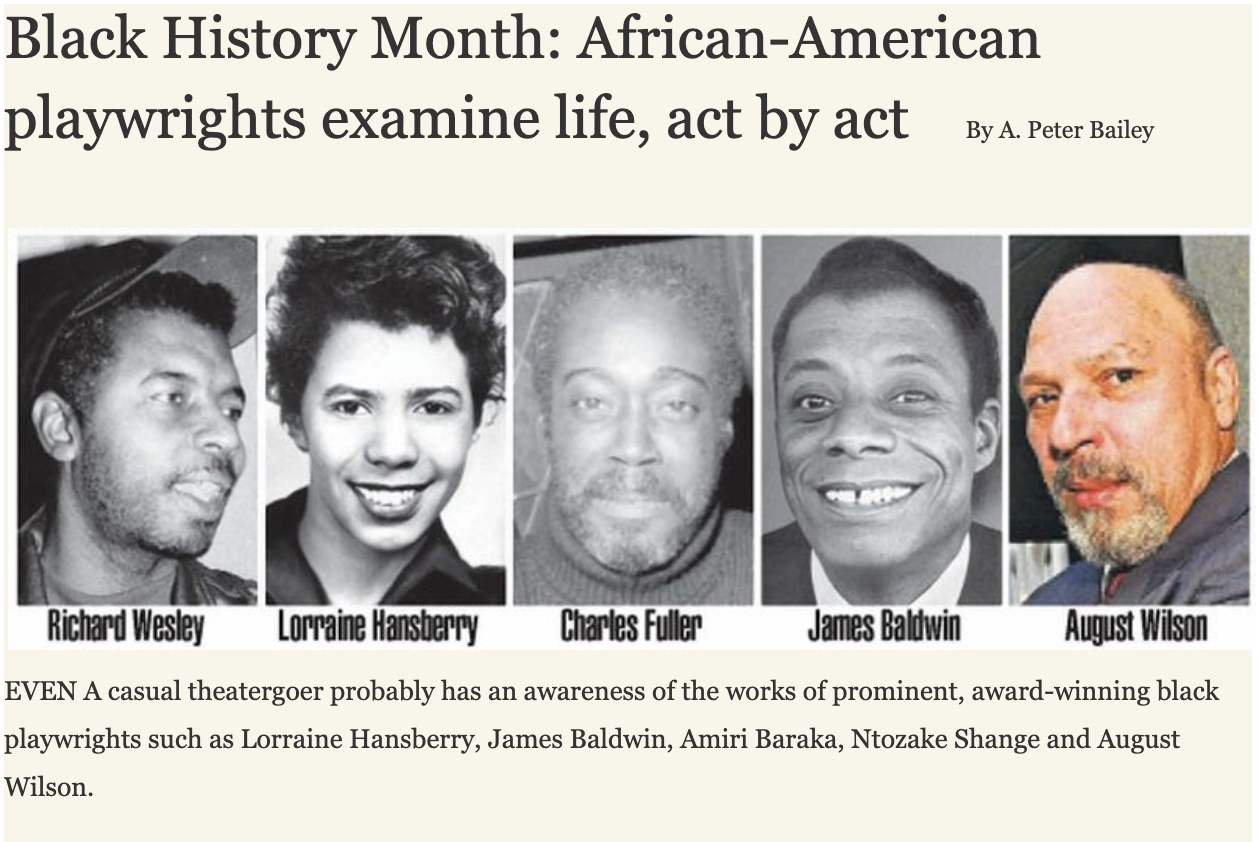Honoring Black History Month: Seventh Grade
“To this end, I have added a Black History portal in the 7th grade Google Classroom that features short biographies - one each day, for the students to read and ponder.”
Following on developments and events that unfolded last year in response to the killings of George Floyd, Bryonna Taylor, Trayvon Martin, and many others, my colleagues and I have been engaged in efforts to examine the content of our curriculum and the methods that we use in educating our students with an aim to transform it to become as inclusive, diverse, and equitable as possible.
My own process is ongoing and multi-layered.
In choosing and crafting lesson content each day, I need to apply an evolving lens of self-critique and inquiry that is constantly being refined through ongoing faculty study and active engagement with local and regional DEI advocates and community activists. I seek methods and techniques in my work with students that will hopefully lead to them developing greater openness, inclusiveness, compassion, wonder, and willingness to confront and work to transform inherent biases wherever they exist.
As is true with so much that is emergent and needing redress in these dynamic and transformative times, this work is fraught with challenges of many kinds. There is no playbook, no established path. I will, and often do, make mistakes. I need to acknowledge shortcomings and mistakes, and to learn from these so that my role in developing the lessons, methods, community festivals, student book choices, and the like will be more diverse, inclusive, less biased, and aligned with our stated objectives.
This is an ongoing, transformative journey for me, for my students and colleagues, and for the community.
Each new festival, each new lesson or book choice, or choices about how we shape and adorn our spaces, offers an opportunity to bring us a little bit closer in welcoming the diversity, harmony, and oneness that we all inwardly seek.
I view Black History Month as a time of celebration for what Black Americans have contributed to the fabric of our country. I strive to celebrate these contributions with my students throughout the year in whichever subject or topic of study we may be engaged in. Black Americans have contributed greatly throughout the history of our country, but their biographies and stories have not been emphasized to the extend that they deserve as this history was unfolding and in the ensuing decades and centuries. An aspect of the reckoning that is due and is currently underway is to put this right — to bring these stories forward. To this end, I have added a Black History portal in the 7th grade Google Classroom that features short biographies — one each day, for the students to read and ponder. These biographies often have links to deeper and more expansive content for those that want to delve deeper. I informed my students that I expect them to consider this reading as an integral aspect of our daily school work. In time we will seek to expand on these measures.
It is my hope that one day in the not too distant future the need for Black History Month will recede because Black history will be celebrated each and every day.
Peter was born into a large family in rural Wisconsin, where he remembers having spent many long and happy days in adventurous play with his nine brothers and sisters (he is a triplet with an identical twin), mostly outdoors in all weather and seasons. His family traveled and camped often, so Peter grew up with a keen interest in nature. As a young man he worked with the Youth Conservation Corps, and while in college, he spent two long seasons as a backcountry ranger in the Eagle Cap Wilderness in Eastern Oregon. Peter received his BS from Evergreen State College, and then traveled to Sussex, England, to study biodynamic agriculture and eurythmy at Emerson College and the London School of Eurythmy. Over the next three years, he completed the Emerson School of Agriculture course, and two years of a four-year Eurythmy degree program. Peter next moved to Germany, where his three children were born, and where he lived and worked for eight years as a landscape gardener while raising his young family.
He eventually decided to pursue his calling as a Waldorf teacher, and he soon enrolled in Waldorf teacher training in Stuttgart, Germany. Upon completion of this course of study, he moved his young family to Washington state, where he began his teaching career at the Whidbey Island Waldorf school. Peter taught and guided a class from first through eighth grade there, and in 2006 he moved to Portland to take up his work at Cedarwood school.
In his work at Cedarwood, he has guided a second class through its eight-year journey and has completed training in spatial dynamics movement. He is currently guiding a large and dynamic group of wonderful students through their seventh grade year.
An avid outdoors enthusiast, Peter also enjoys activities involving music and dance, and gatherings with family and friends when opportunities arise.

